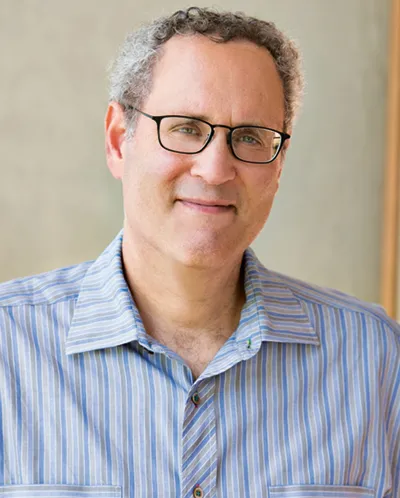Michael J. Gerhardt, ’82: Constitutional Law Scholar Making a Real-World Difference

As the first impeachment proceedings against President Trump were about to begin, a headline in the New York Times asked, “Who is Michael J. Gerhardt?”
It was a reasonable question, since Gerhardt, ’82, was set to testify as one of four constitutional scholars called by the House Judiciary Committee, and he would soon be commenting on impeachment-related issues on CNN and in other media outlets. Previously, he had been the only joint witness in the House of Representatives’ impeachment proceedings against President Clinton, and subsequently he served during Trump’s second impeachment trial as special counsel to the presiding officer, Senator Patrick Leahy.
He earned all those roles—and many others, including serving as special counsel to the Senate Judiciary Committee for the confirmations of five of the nine currently sitting Supreme Court justices—through a prolific career of scholarship, publications, and service, primarily focused on constitutional conflicts between presidents and Congress, and more generally on the Constitution outside the courts.
His first published law review article, in 1989, was “The Constitutional Limits on Impeachment and Its Alternatives.” More than 100 law review articles, seven books, and numerous op-eds and other commentaries, on a broad range of topics, have followed.
“I knew from a pretty early age that I wanted to understand the place of the Constitution outside of the courts,” Gerhardt said. “I grew up Jewish in Alabama in the 1960s and early ‘70s, and that was a time of great civil rights turbulence. I saw the limitations of courts’ actual impacts, as rulings such as the Brown decision were not honored on the ground. And President Nixon resigned just a few months after I graduated from high school. It was a seismic time, often centered on constitutional issues, and I wanted a career that would allow me to engage with those kinds of issues.”
Gerhardt studied economics and political philosophy at Yale and furthered those studies at the London School of Economics before coming to the Law School. “I had several attractive law school options,” he recalled, “but Chicago stood out for its intellectual rigor and interdisciplinary focus. It turned out to be everything I had hoped for—I loved my time at the Law School, where everything I had imagined that would be possible for me was actually possible.” Among other things, he was one of two student editors of The Supreme Court Review and a research assistant to Cass Sunstein during Sunstein’s first year on the Law School faculty, examining ways that constitutional law intersected with administrative law.
Today, Gerhardt is the Burton Craige Distinguished Professor of Jurisprudence at the University of North Carolina School of Law, where he has taught since 2005. Some highlights from his highlight-filled career include being the first legal scholar asked by the Library of Congress to serve as its principal adviser in revising the official United States Constitution Annotated; selection by the Order of the Coif as its Distinguished Visitor for 2020–2022 (an award given to only one law professor each year); induction into the American Law Institute; testifying before Congress more than 20 times; and addressing the House of Representatives on presidential impeachment in 1998. Earlier this year, Gerhardt was honored by UNC with its Thomas Jefferson Award, its highest honor given annually to a faculty member for outstanding public service.
His work with Congress has often been across party lines. In his service with the Senate Judiciary Committee on Supreme Court nominations, for example, he was special counsel to the Democratic leadership on the committee, a position requiring approval by both sides.
“My passion for constitutional law came from growing up in the real world and wanting to make a real-world difference,” he said. “Interacting with senators and representatives on issues crucial to protecting our democracy is one way I get to do that; writing books and opinion pieces for the broader public is another; and writing law review articles and teaching future lawyers are others. While I can’t say that UChicago instilled that desire for public service in me, the Law School strongly encouraged it and gave me experiences, skills, and support to do it as well as I am able to. For those things, I am very grateful.”
View Michael Gerhardt's books.


